
The need for hot water in Australian homes has changed a lot over the last decade. Showers are longer. Appliances […]
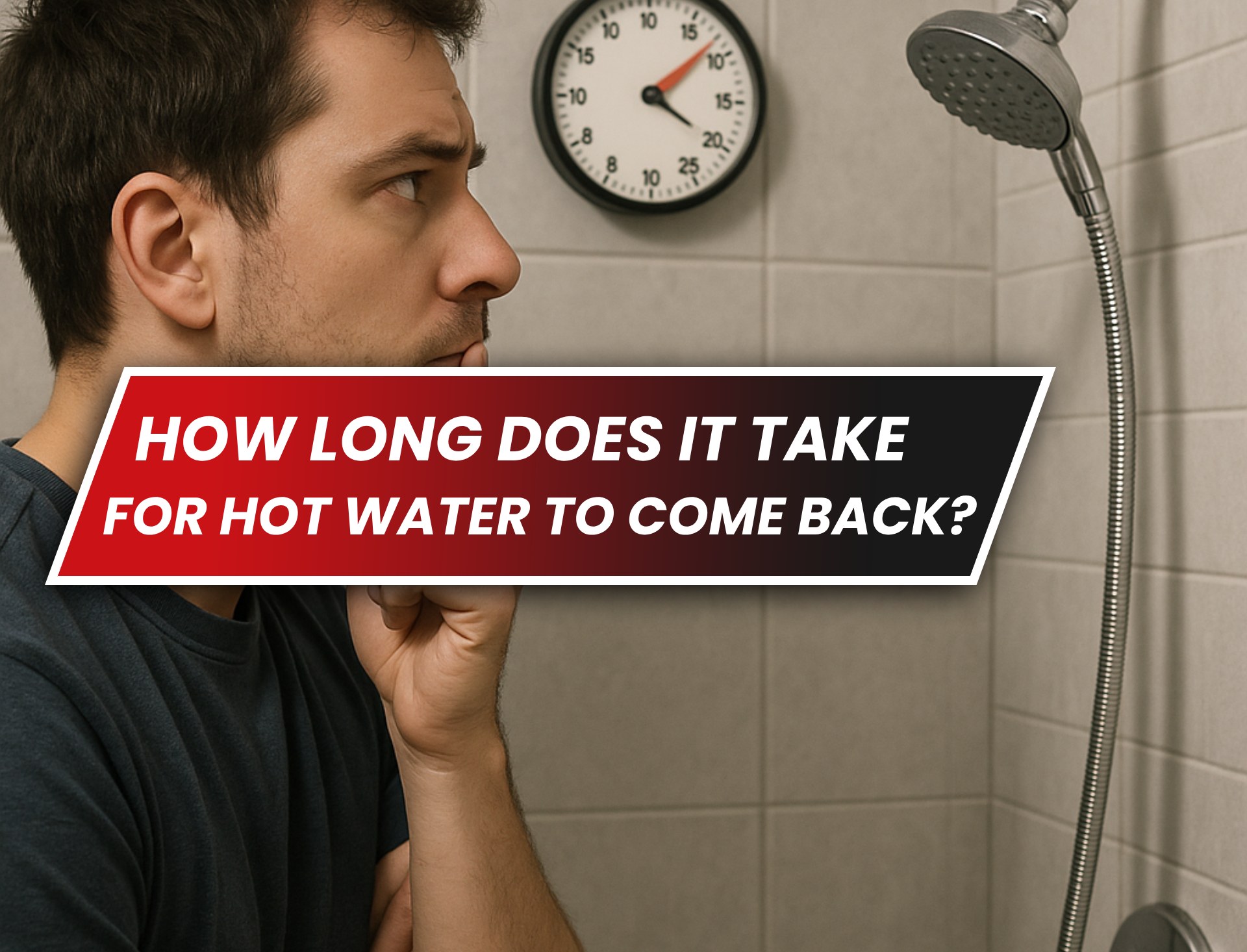
Coming back from an exhausting day and getting those warm showers can be a relaxing moment for you, but everything changes when the hot water stops.
If you’ve ever been caught mid-shower with freezing water, you might also be in the queue of those asking, “How long does it take for hot water to come back?”
This has become a general question for many homeowners—well, this article will discuss average hot water recovery times, the factors that affect recovery time, and also common problems that can slow recovery time.
To determine your hot water recovery time properly, it is important that you first consider the average recovery times for the different types of water heaters that are available.
In case you don’t know, recovery time is the period of time that one holds onto hot water after it has been used.
Let’s have a look at how recovery time works for an average of 50 gallons of tank:
The difference here is in the type of heating. A gas heater uses burners, which heat water much faster than electric rods used in electric water heaters.
So while you try to understand why gas heaters recover faster, consider that gas burners heat up much more quickly, which will make your water heater restore your hot water output in a shorter time.
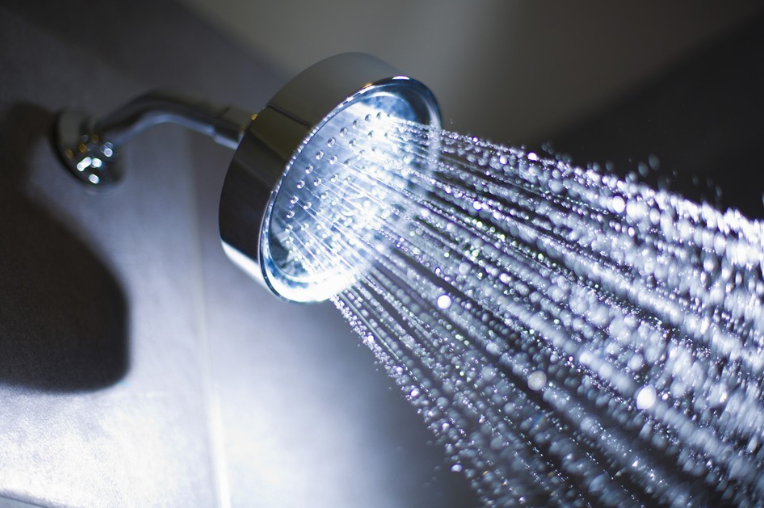
Still on the question, “How long does it take for hot water to return?” In this section, you will gain a better understanding of the factors affecting hot water recovery time and how to prevent them.
The recovery time of the heater and the size of the water tank are important in this topic. The larger the tank, the longer it will take to recover because you have a larger volume of water to heat.
A residential water heater should range from 20 gallons to 100 gallons, and big tanks will need more time for the burners to heat the water again.
If the water heater tank is almost empty of hot water, the recovery time will increase. Cooling down hot water would happen as soon as new cold water enters the tank, which will increase recovery time.
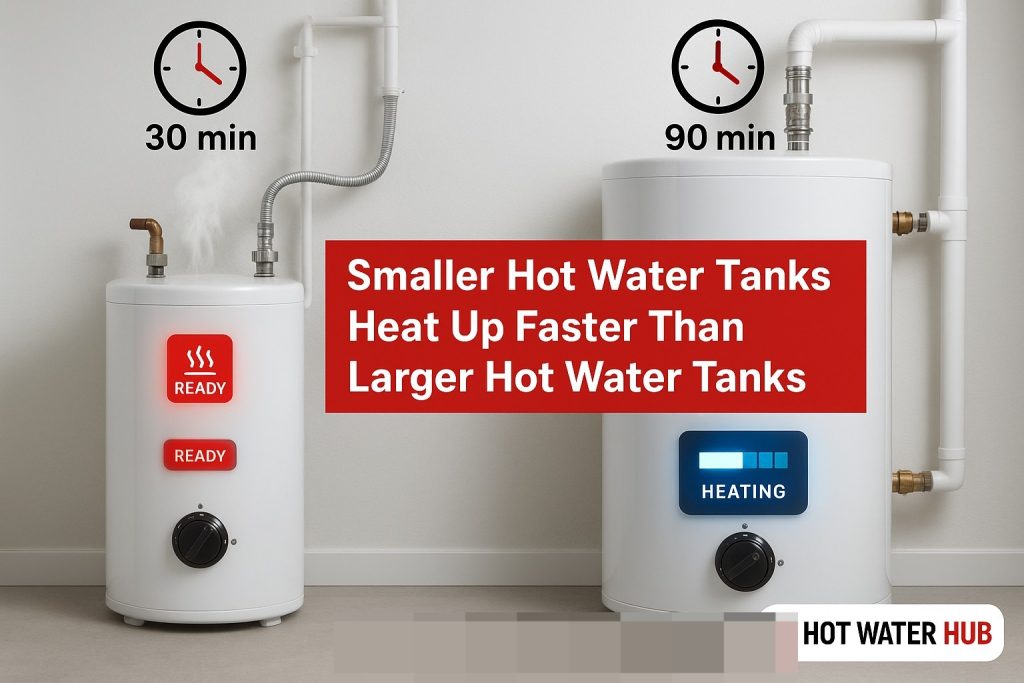
First-hour ratings can be described as the amount of hot water your water heater can output in its first hour of operation, and these are used to compare different tank sizes, burner power, and heat sources.
The higher the first-hour rating, the faster your water heater will recover.
All you need to find your water heater’s first-hour rating is to check the Energy Guide label on your unit. This label is designed to provide useful information regarding the recovery capabilities of your tank.
Earlier, I stated that gas water heaters heat water faster than electric water heaters. Gas water heaters are usually more energy efficient and tend to be more economical in the long run.
If you notice that your electric heater takes longer to heat water, it might be time to consider a gas unit, especially if you have a natural gas line already installed in your home.
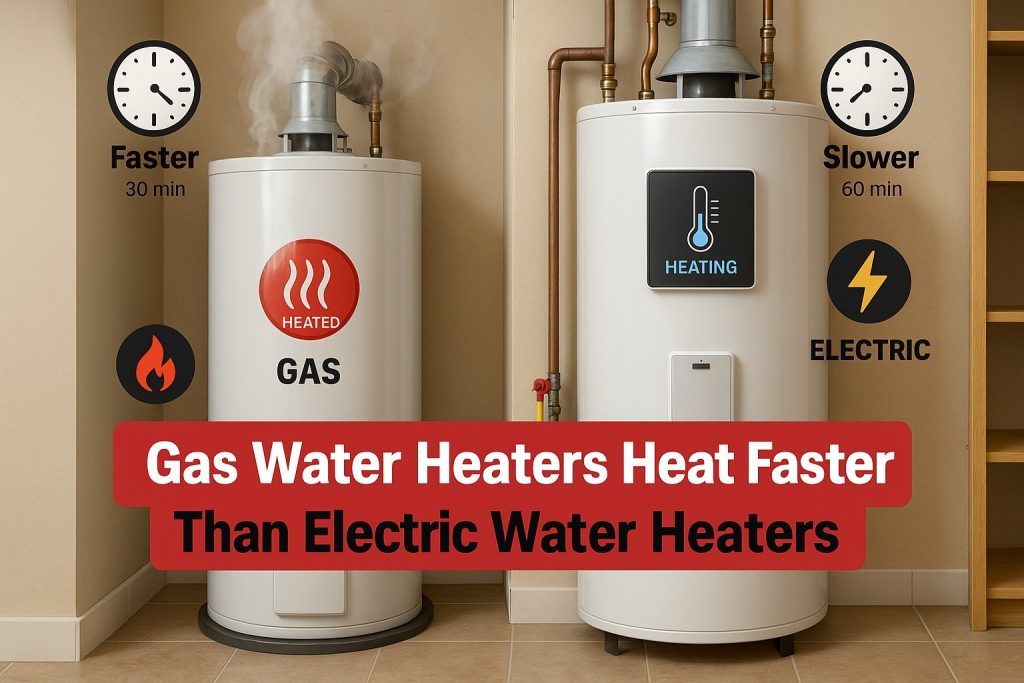
Your temperature rise will vary according to that internal temperature and the desired hot water temperature. The bigger the difference, the longer your water will be heated.
Hot water consumption also plays an important part in determining recovery time for heaters.
If several people are using hot water at the same time, the tank can empty faster than it fills up, which will result in the recovery taking a longer time, especially if an individual heater is already nearing its capacity.
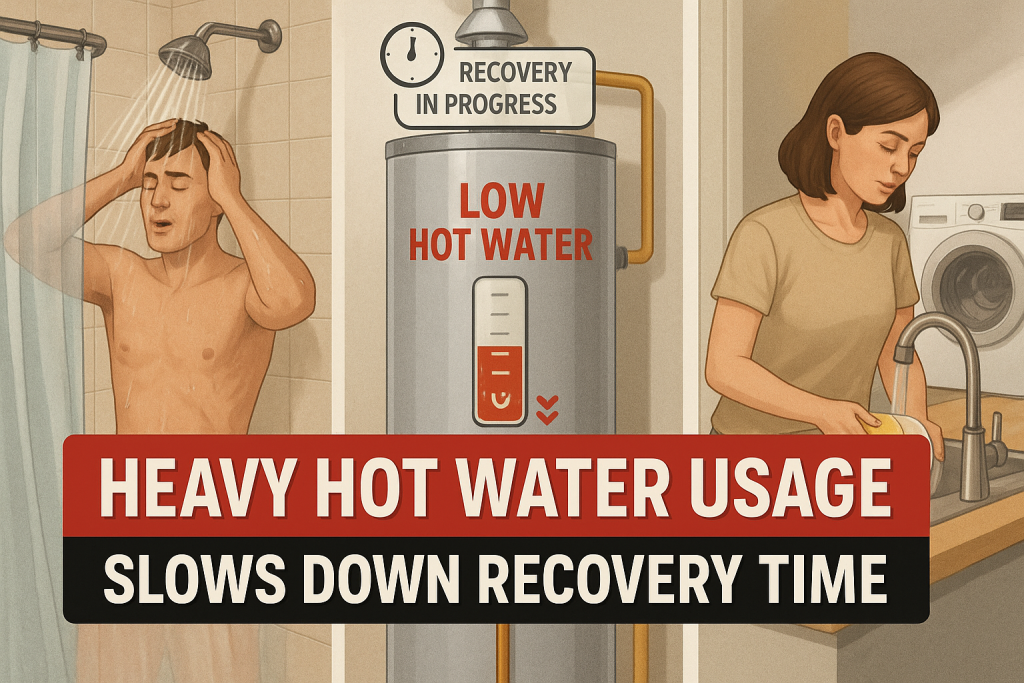
If you notice that your hot water is taking too long to come back, consider the following:
How long does it take for hot water to come back? Well, the average recovery time will vary with several other factors, such as the type of water heater you have, the size of your tank, and your overall usage pattern.
While this article answered most of the important issues on this topic, it’s always advisable to have a professional plumber check and service your water heater if the recovery time takes longer.